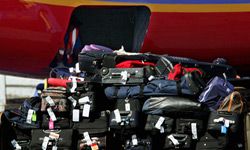It might as well be the fundamental law of travel: No matter where you go, how you get there or how long you stay, you'll spend more on day-to-day costs during your trip than you would staying home. To anyone who travels for pleasure, that's an acceptable price to pay for the benefits of a trip. But when you're trying to determine just how much a trip should cost, the details can get blurry.
Costs such as airline tickets and hotel rooms are givens: You're likely well aware of these costs in the early stages of your trip planning. Budget-conscious travelers may also calculate their per diem, or daily costs for food, sightseeing and other recreational activities.
Advertisement
But what if someone gets sick? What if it rains unexpectedly? And what if the only way to get from the hotel to a must-see destination is by a cab or rental car? There are a number of unexpected -- and sometimes hidden -- costs that can quickly spike the total cost of your trip to an uncomfortable height.
Thankfully, a little awareness and wise pre-planning can help you mitigate the worst of these unexpected travel costs. And while it's always a good idea to have reserve funds on hand in case the unexpected occurs far from home, here are some basic tips on avoiding five of the most common sources of unexpected travel costs.


